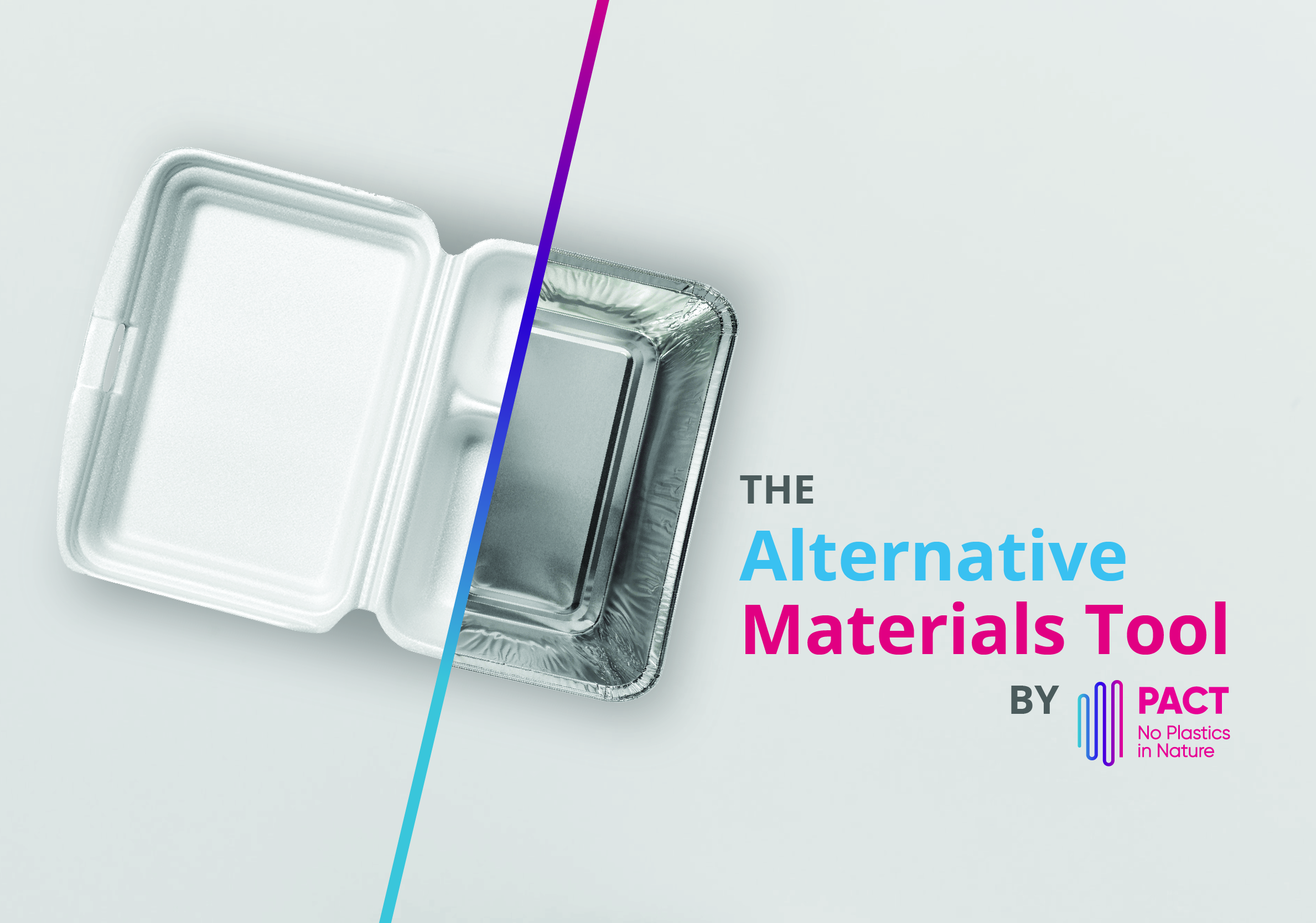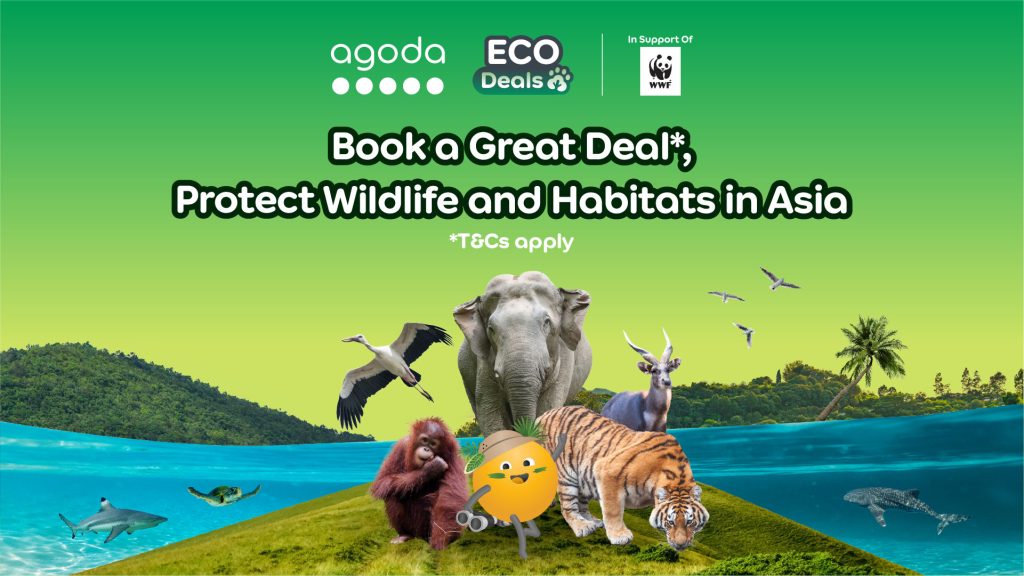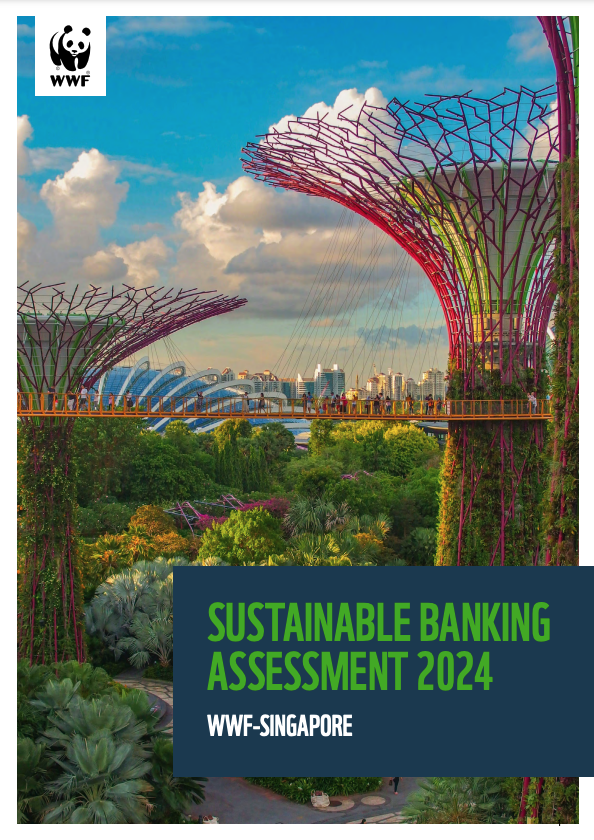SINGAPORE, 3 September 2020 — The World Wide Fund for Nature (WWF) Singapore today launches its Alternative Materials Tool (AMT), Singapore’s first web tool designed to help businesses make informed comparisons and science-based decisions on single-use packaging materials, which sets the standard for a meaningful plastic action towards the circular economy and contributes towards Singapore’s zero waste masterplan for plastics.
Developed based on a life cycle analysis that evaluates the impact of materials, from the extraction of raw materials to disposal in the context of Singapore’s waste streams, the one-stop AMT allows businesses to identify suitable packaging materials with the least environmental impact. It aims to reduce plastic use without transferring the environmental cost from one system to another.
Said Mr R. Raghunathan, CEO of WWF-Singapore, “The AMT is developed based on a life cycle analysis that evaluates the impact of materials from the extraction of raw materials to disposal in the context of Singapore’s waste streams. It helps businesses navigate the complex environmental trade-offs by selecting materials used in single-use food and non-food packaging decisions. Designed for the Food & Beverage and Hospitality sector or even individuals who wish to learn more about the impact of various materials, we hope the AMT will drive the industry to make more conscious decisions on single-use packaging, should reusables not be an option.”
AMT’s Recommended Packaging Materials and Insights
WWF’s PACT (Plastic ACTion) initiative strongly recommends that businesses switch to reusable packaging models rather than to continue relying on single-use packaging (see Appendix 1 for PACT goals and guiding principles). However, in the event when single-use packaging is unavoidable, the AMT provides evidence-based guidance on alternative materials that should be used in the context of the local waste management systems.
Findings from the tool show that mono-material packaging is generally better due to the higher recyclability and that the environmental footprint of recycled material is lower than the virgin material itself. An example of recycled materials ranked highly in the AMT (for bags use) is the recycled paper and recycled plastic (High Density Polyethylene with 75% recycled content, r-HDPE), which score higher than their virgin counterparts. A higher demand by businesses for recycled plastics in packaging will also ensure that plastics are being recycled into value-added products.
This underscores the importance of dedicated local recycling facilities in Singapore, which will enable a consistent supply of recycled plastics in Singapore while boosting confidence in recycling among households.
The least recommended material in the AMT is expandable polystyrene (PS expandable), commercially known as styrofoam. Not only is styrofoam not suitable for recycling, it also has a higher environmental footprint during its production as compared to the other fossil fuel-based products.
“Within our hotels in Singapore, the AMT is a very useful tool for us to have a more holistic understanding of upstream and downstream impacts of materials we purchase. Through this, we intend to work with our suppliers, government and the broader industry to continuously improve our best practices to close the loop and eliminate plastics in nature.” said Andrew Cameron, Head of Procurement, Accor Hotels Singapore.
“The Alternative Materials Tool (AMT) is a much-needed resource that allows us and our F&B partners to easily shortlist eco-friendly alternatives that can replace single-use packaging. I truly believe that education is key in accelerating our journey to become a zero-waste nation, and the availability of a ready toolkit that can be easily accessed definitely boosts our collective efforts in reducing plastic waste.” added Laura Kantor, Marketing and Sustainability Director, foodpanda Singapore.
How AMT works
Life Cycle Analysis (LCA) and Scoring
AMT helps to quantify the negative impact caused by different materials by evaluating them through the Life Cycle Analysis (LCA) scoring, a systemic process that examines the different stages of a material’s life from manufacturing, distribution, consumption to disposal – exerting collective impact on the environment.
To ensure a fair and accurate comparison, each material will be scored based on the combination of packaging type, size, functions and country of use. Ultimately, the material with the least environmental impact (most sustainable) will receive the highest overall score and ranking, and should be prioritised during the procurement process. Read more on AMT’s methodology here.
AMT is supported by committed members of WWF’s PACT initiative, including H&M. AMT does not cover the effects of product design, additives, laminates, and transport as these vary immensely from supplier to supplier.
AMT Public Virtual Event: Unpacking Plastics
WWF-Singapore is committed to collaborate with businesses on finding practical solutions to end marine pollution. Happening in the coming weeks, WWF-Singapore is set to go on live with “Unpacking Plastics” — an insightful virtual event open to businesses and individuals to learn more about plastics and the AMT. Please register HERE.
To learn more about WWF’s Alternative Materials Tool (AMT),please visit:
http://plastic-action.asia/alternative-materials-tool/
To learn more about WWF’s PACT (Plastic ACTion) initiative, please visit:
https://plastic-action.asia
For more information, please contact:
Hazel Xu, Assistant Manager, Media, WWF-Singapore
Email: hxu@wwf.sg.
Appendix 1: PACT Goals and Guiding Principles
To achieve the vision of No Plastics in Nature by 2030, PACT is working towards these goals:
● Elimination of all unnecessary plastics
● Reduction of at least 50% of single-use plastics
● Support of a circular economy by moving to 100% reusable or recyclable product or packaging design models
● Removal of plastics from nature by making a net positive impact You may read more about the PACT Guiding Principles here. 4 WWF has been known as the World Wide Fund for Nature since 1986. It was previously the World Wildlife Fund.















